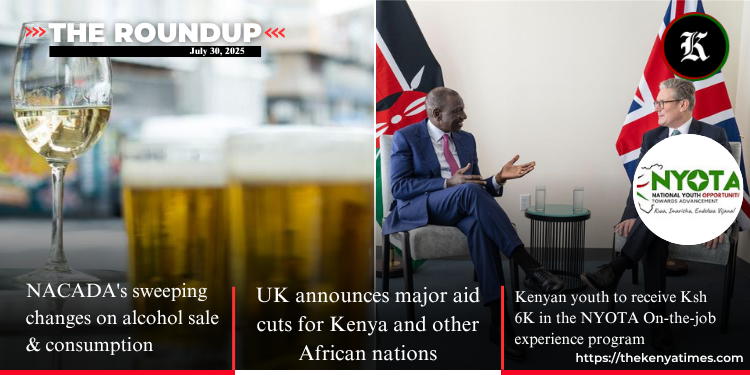Hello, Jason here. Welcome to today’s edition of The Business Roundup, where we bring you the latest international and local economic updates from the business world. From shifts in global aid policy to major domestic reforms, here’s what’s shaping headlines. We start in the United Kingdom (UK), where the government has announced significant cuts to its foreign aid budget.
This move will directly impact several African nations, including Kenya.
Subscribe today and stay updated on top news stories in The Kenya Times Business Roundup. The Roundup presents a compilation of business stories that hit headlines throughout the week
UK aid cuts to affect Kenya
According to newly released foreign aid figures, aid to Africa will fall by 12%, dropping to Ksh242.3 billion (£1.4 billion) for the 2025/26 financial year.
The shift comes as part of a broader strategy to move from direct bilateral aid to investment-focused partnerships through multilateral institutions such as the World Bank and Gavi.
What the UK Government said:
“The UK’s new approach aligns with recent calls from Global South leaders for a move away from traditional aid to a focus on investment and partnerships, including from the African Development Bank, and the former Kenyan President.”
Notably, the UK has pledged Ksh343 billion (£1.98 billion) to the World Bank’s International Development Association (IDA), a fund that supports 75 low-income countries — Kenya among them.
The new approach aligns with calls from Global South leaders, including former President Uhuru Kenyatta, for aid to evolve into more sustainable, investment-based partnerships.
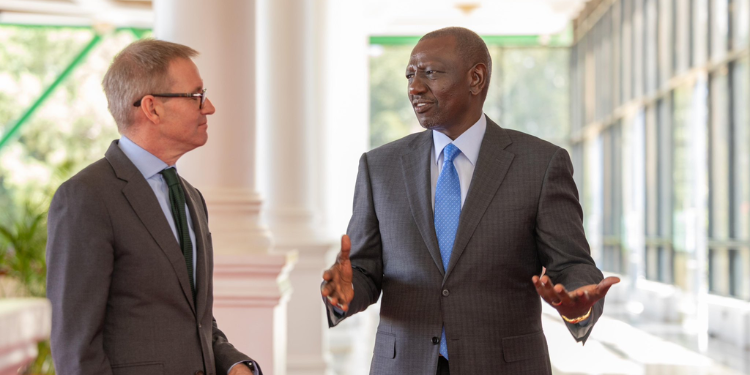
Consequently, Kenya will have to access funds through global platforms instead of getting direct country support. The United Kingdom has insisted that the move will ensure an even greater impact.
Kenyan Youth to earn Ksh6,000 through NYOTA On-the-job experience
Switching focus to the local news, the Cabinet approved the launch of the National Youth Opportunities Towards Advancement (NYOTA) Project — a flagship government and World Bank initiative aimed at empowering over 820,000 vulnerable and unemployed Kenyan youth, including persons with disabilities.
One of NYOTA’s core components is an on-the-job experience programme that will place 90,000 youth in temporary roles across the country, offering a monthly stipend of Ksh6,000 for a duration of 3 to 6 months.
Payments will be made through Haba Haba savings accounts, promoting both employment and financial inclusion.
Applications are open until August 15, 2025, with over 1 million applicants already in the system.
Other programme components include entrepreneurship support, technical training, and Recognition of Prior Learning (RPL) certification.
New NACADA rules affecting consumption and sale of alcohol
In regulatory news, the National Authority for the Campaign Against Alcohol and Drug Abuse (NACADA) has announced proposed sweeping changes to Kenya’s alcohol policy through the National Policy for the Prevention, Management, and Control of Alcohol, Drugs & Substance Abuse, released on July 30, 2025.
Key reforms include:
-
Raising the minimum legal age for buying, handling, consuming, and selling alcohol from 18 to 21 years.
-
Prohibiting alcohol sale and consumption in public and sensitive spaces — including beaches, parks, medical facilities, learning institutions, sports venues, and transport hubs. In addition, the use of vending machines, online sales, home deliveries, hawking, supermarkets, and outlets associated with children- such as toy shops—have all been banned from distributing alcohol.
-
Banning the use of celebrities, influencers, and media personalities in alcohol advertising.
-
Restricting alcohol ads during watershed hours (5:00 a.m. – 10:00 p.m.), including those broadcasting from outside Kenya.
-
Outlawing vending machines, home delivery, hawking, and alcohol sales via outlets frequented by children (e.g. toy stores).
Alcohol and substance use in Kenya
The policy is the result of extensive stakeholder consultation across various sectors and is set to redefine how alcohol is accessed and marketed in Kenya.
According to NACADA, alcohol, cannabis, tobacco, and prescription drugs are being used at increasingly younger ages.
“1 in 6 Kenyans aged 15–65 uses drugs, with alcohol (3.2M users) and tobacco (2.3M) leading.
Cannabis use has risen by 90% in five years. Alarmingly, 42.4% of alcohol users, 38.8% of tobacco users, and 47.4% of cannabis users are addicted, underscoring the urgent need for more treatment and rehabilitation services.”
Drug and substance abuse is significantly more prevalent among Kenyan youth than the general population. Among those aged 15–24, 1 in 11 is using at least one substance, with alcohol, tobacco, and cannabis being the most common.

Also big this Week
- Nairobi City County has issued a stern warning to Kenyans who buy goods from hawkers operating in undesignated areas.
- The Cabinet has approved the reinstatement of Kenya Pipeline Company (KPC) into the privatization programme, paving the way for the partial sale of government shares in the energy parastatal.
- The Tanzanian government has banned Kenyans and other foreign nationals from engaging in 15 business activities traditionally dominated by small and medium-sized enterprises.
- The National Transport and Safety Authority (NTSA) has issued a directive requiring all vehicle and motorcycle owners to update their vehicle duty status and records.
- Family Bank has received a Ksh2.6 billion ($20 million) trade finance facility from the British International Investment (BII) to expand its lending to Kenyan businesses.
- Capital Group Limited, the company behind Capital FM, has announced plans to declare several positions redundant as part of a broader restructuring effort aimed at securing its long-term sustainability.
- The Central Bank of Kenya (CBK) has announced a new lending framework requiring all banks to use the interbank rate as the base for pricing loans.
- Kenya is now poised to receive a delayed Ksh97 billion ($743 million) loan from the World Bank after President William Ruto signed the Conflict-of-Interest Bill into law on Wednesday, July 30.
Other big stories
- Kilifi Governor Gideon Mung’aro and Cabinet Secretary (CS) Hassan Joho have ordered the immediate closure of Simba Cement’s mining site in Kaloleni, Kilifi County.
- The Head of Public Service and Chief of Staff Felix Koskei has issued a stern directive to all Principal Secretaries, Chief Executive Officers of State Corporations, and Chairpersons of key government committees, calling for urgent reforms aimed at enhancing service delivery across the Public Service.
- Public Service Cabinet Secretary Geoffrey Ruku has announced that the government will introduce a new payment system for all civil servants as a way of fighting the menace of ghost workers.
- National Treasury Cabinet Secretary Mbadi clarified whether parents will pay fees after free education shocker.
-
Concerns raised over opening of the luxury Ritz-Carlton, Masai Mara Safari Camp in the Maasai Mara National Reserve.
- The Court of Appeal issued a ruling on key laws governing the Road Maintenance Levy Fund (RMLF) following an earlier ruling by the High Court of Kenya that declared key laws governing RMLF unconstitutional.
- Kenya secured a major legal victory in a multi-billion-shilling international arbitration claim filed at the London Court of International Arbitration (LCIA).
Currency Trends
According to the latest Central Bank of Kenya (CBK) data, the Kenyan Shilling exchanged at Ksh129.2401 per US dollar on July 30, 2025.
Against other major currencies, the Shilling traded at:
- Sterling Pound – Ksh172.5291
- Euro – Ksh149.3240
- South African Rand – 7.2314
- Japanese Yen (100 units) – Ksh87.3746
Against regional currencies, the Shilling exchanged at:
- Ugandan Shilling – Ksh27.7391
- Tanzanian Shilling – Ksh19.8855
- Rwandan Franc – Ksh11.1747
Follow our WhatsApp Channel and X Account for real-time news updates.




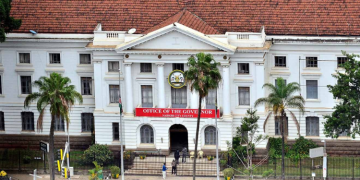














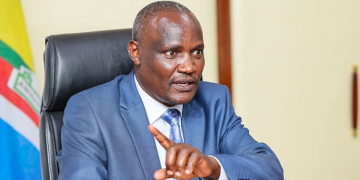
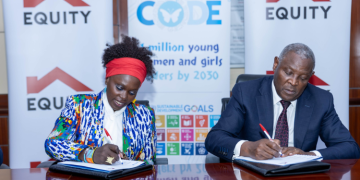
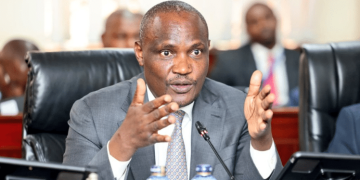




























![Senator Allan Chesang And Chanelle Kittony Wed In A Colourful Ceremony [Photos] Trans Nzoia Senator Allan Chesang With Channelle Kittony/Oscar Sudi]( https://thekenyatimescdn-ese7d3e7ghdnbfa9.z01.azurefd.net/prodimages/uploads/2025/11/Trans-Nzoia-Senator-Allan-Chesang-with-Channelle-KittonyOscar-Sudi-360x180.png)




















